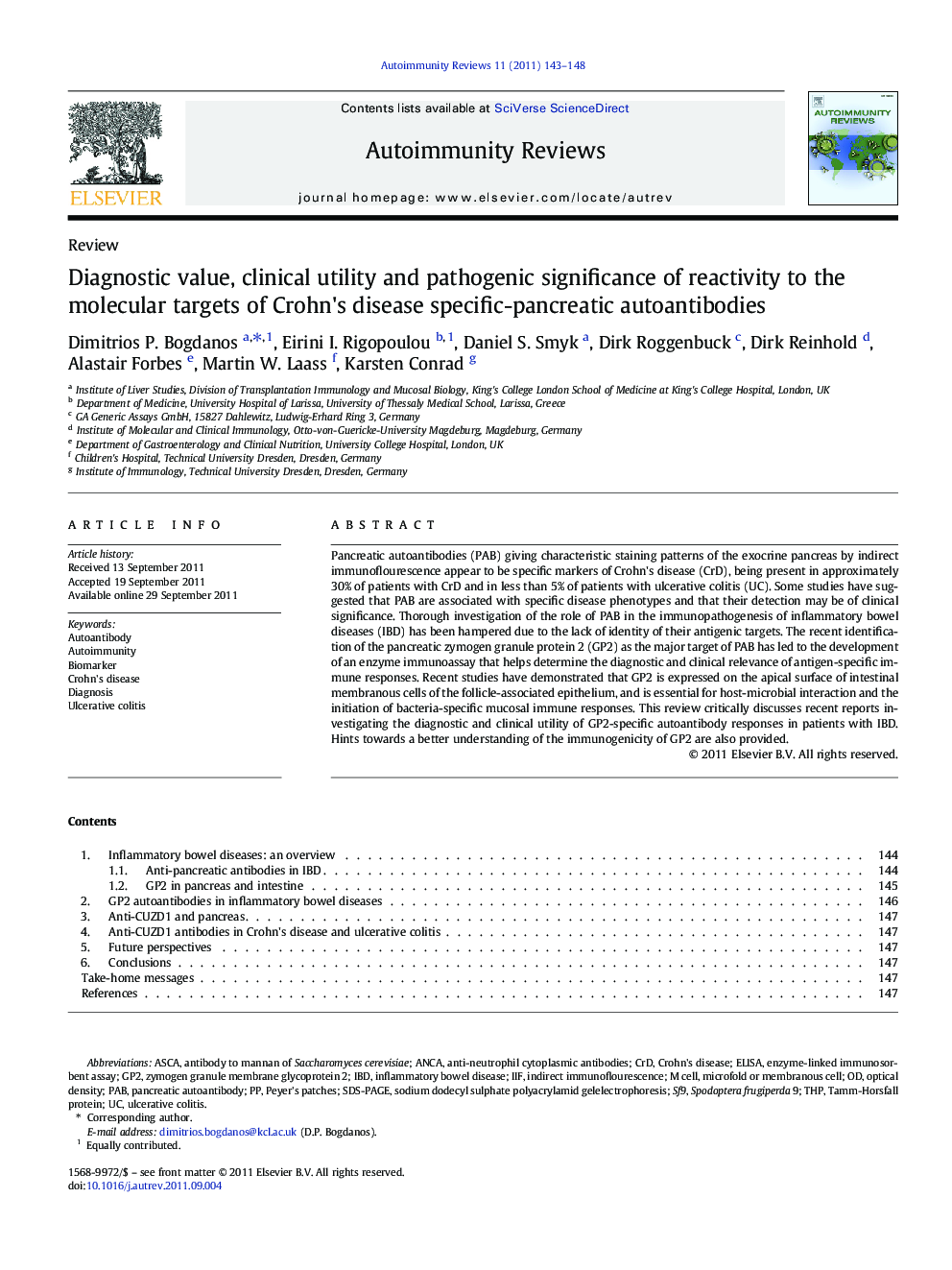| Article ID | Journal | Published Year | Pages | File Type |
|---|---|---|---|---|
| 3341839 | Autoimmunity Reviews | 2011 | 6 Pages |
Pancreatic autoantibodies (PAB) giving characteristic staining patterns of the exocrine pancreas by indirect immunoflourescence appear to be specific markers of Crohn's disease (CrD), being present in approximately 30% of patients with CrD and in less than 5% of patients with ulcerative colitis (UC). Some studies have suggested that PAB are associated with specific disease phenotypes and that their detection may be of clinical significance. Thorough investigation of the role of PAB in the immunopathogenesis of inflammatory bowel diseases (IBD) has been hampered due to the lack of identity of their antigenic targets. The recent identification of the pancreatic zymogen granule protein 2 (GP2) as the major target of PAB has led to the development of an enzyme immunoassay that helps determine the diagnostic and clinical relevance of antigen-specific immune responses. Recent studies have demonstrated that GP2 is expressed on the apical surface of intestinal membranous cells of the follicle-associated epithelium, and is essential for host-microbial interaction and the initiation of bacteria-specific mucosal immune responses. This review critically discusses recent reports investigating the diagnostic and clinical utility of GP2-specific autoantibody responses in patients with IBD. Hints towards a better understanding of the immunogenicity of GP2 are also provided.
